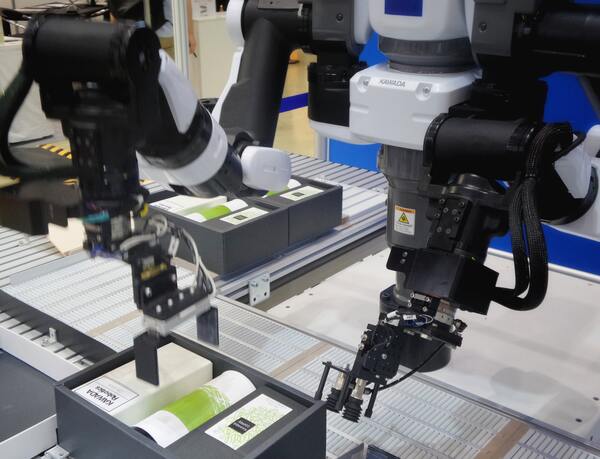Automated manufacturing solutions


Automation of production and production processes belongs to the category of independent integrated solutions. It remains the main line of development and modernization in the field of industrial production for many decades. The concept of “automation” assumes that control and control functions that were previously performed by specialists are transferred to machines and devices.
Industrial automation and digitalization strategies help companies thrive in highly competitive markets. Digitalization has long been a major trend. The integration of modern information and communication equipment with production into one network has taken oriented forms for small and medium-sized enterprises.
Many automation systems using the latest technologies in combination with suitable software solutions have already been implemented around the world. The production plants will be equipped with smart digital control equipment and assembly processes. Automation plays a significant role in all industries.
Modern companies offer solutions for full automation of measurements or management of technological resources. Automation increases production capacity and profitability to an optimal level.
Automation of the technological process is a set of methods and means of implementing tasks without direct human involvement. They are designed to implement a system that allows you to control the technological process.
The main role of the introduction of automation systems is to increase the level of efficiency, mobility and facilitate the work of employees. Thanks to these changes, the level of competitiveness in the market are increasing, and there is a powerful use of the resource base.
Automation of production can be carried out in several ways:
At the modern level, automation of production management systems is a multi-level scheme of interaction between people and machines based on automatic data collection systems and complex computing systems.
In recent years of development, automation provides 3 stages:
In the current economic conditions, industrial enterprises are at the forefront. They respond promptly to changing conditions, develop a variety of solutions, and set new standards for the production of products, maintaining quality at a high level. Modern production processes must be fast. Also, industrial solutions and robotics have evolved for fast operability.
The primary task is to understand how the tasks of the automated control system are labor-intensive and difficult for an IT company that implements such projects. The complexity grows from the scale of the task, whether it is one software for a specific process or providing full automation. In the latter case, the work is carried out by a company of narrow IT specialization, or several companies. As a rule, it depends on the production goals, financial capabilities and other external factors.
What are the challenges facing an IT company implementing tasks in the direction of automated control systems? The creation of an automated control system has an integrated approach. The implementing party needs to investigate the object of automation, and understand the principles of the company’s activities in the field itself. After all, it can be both a mining company and a large dairy production, where the tasks and features of software implementation will be different.
The design takes into account the individual requirements of the customer for functionality and modern requirements for ergonomics. The choice of software is based on the specified requirements and needs of the enterprise. Below is an average example of the implementation of such tasks.
The study of the customer’s object and the creation of the project, its approval. Development of specifications according to customer requirements and preparation of technical specifications. Creating software for existing management nodes. Sometimes, enterprises need to hire more performers to develop new management nodes. Software and equipment testing, training of production personnel in handling software. In the future, the company is engaged in technical support of the product.
Additionally, the developer faces the tasks of ensuring digital security, accounting, data storage, and system adaptation. And sometimes the goals are to provide an automated system with the ability to learn, recognize objects through cameras and computer vision, analyze and process the information received.
Examples of automated systems may include robots for collaboration. As a rule, they are designed so that employees can interact while doing hard work or tasks. Today, the development of robots has reached a new level of development. They combine strength and mechanical precision, attentiveness. Humans provide greater flexibility, intelligence, and sensitivity.
Automation of production processes improves the quality of regulation, control and the result of work activity. Also, automation functions simplify the collection and storage of information about production processes.
The leading modern trend in the automation of production and enterprises is the use of flexible solutions. Technological flexibility consists in accelerating and slowing down performance while maintaining the coherence of all elements of the system. The structure of the flexible system involves industrial robots, manipulators, means of transportation, processor, and microprocessor control systems. The creation of this system involves the complex automation of the enterprise or production.
PNN Soft provides services for the creation of integrated solutions. Our company offers the development of software solutions for process automation in medium-sized enterprises. A technical specialist develops each request individually. We are ready to provide consulting services upon your request.
If you are looking for a reliable software development company, fill out the form below.